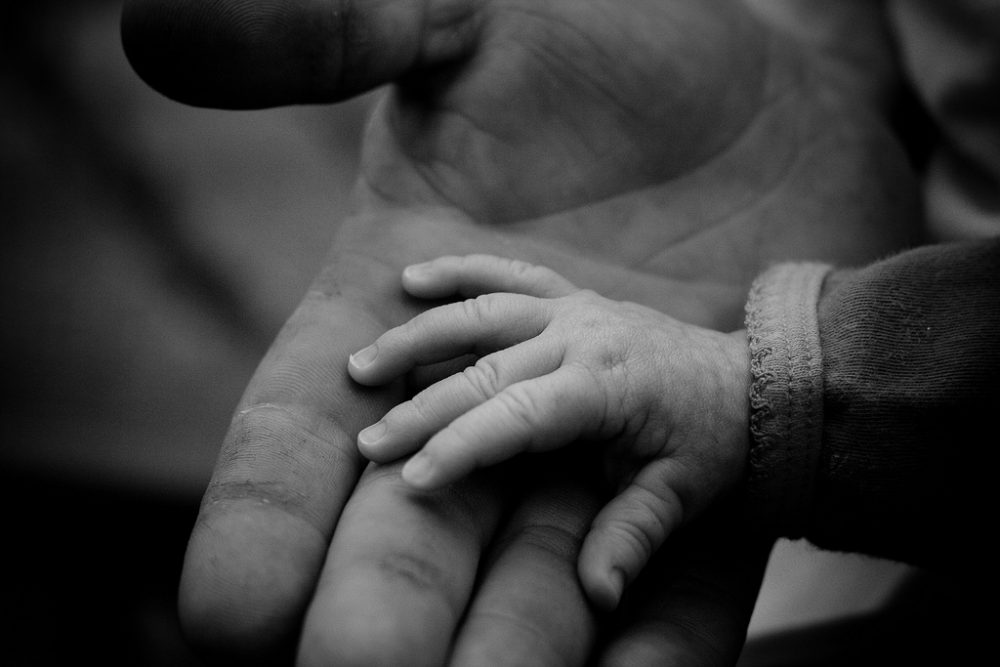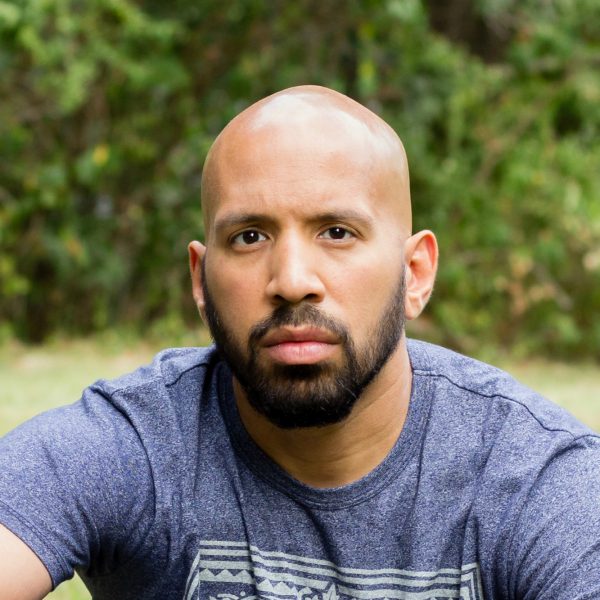Advertisement
'Are We Safe?' In Trump's America, A Father Worries

COMMENTARY
My sons, 4 and 2, have a favorite game. We play “chase," running from room to room in a circle, until I get far enough ahead of or behind them that I can hide behind a wall or in a corner. When they lose sight of me, my eldest slows the youngest to a tiptoe and asks, “Are we safe?”
The 2-year-old, as he always does, imitates his older brother; the “R” more a “W”, the last word ending on a higher octave. No matter how many times we play, my smile at the sound is just as broad, my snickering threatening to give away my position. They leap, what seems like feet from the ground as I pounce from my covert corner, and their shrieks of joy trail off around the bend as we start the game again.
In the last few weeks, the chase has felt different. Because the question, for me, has become bigger than the game.
“Are we safe?”
For the first 10 years of our marriage, my wife and I were the “no kids” couple. Early in our dating, we discussed our feelings about children and were fortunate enough to agree. We loved our freedom, our ability to travel and, despite urging from friends and family, we never hesitated to say, "never."
... I floated in this limbo of racial ambiguity that sparked questions of identity for me far too early, and that have lingered far too long.
I don’t know that we ever knew what exactly changed our minds, save that we wanted to build on the love in the home we’d made together. Happily, we changed our minds about having children privately at almost exactly the same time before broaching the topic with each other over a dinner that ended in tears of joy and excitement about the adventure to come. Despite our mutual enthusiasm, however, for me, one hesitation remained.
My father is black and my mother is white. While a proud, graying natural sits atop my father’s head, the genetic crapshoot of their interracial union left my hair absent of his tight curls; left my skin shades lighter. As a result, I floated in this limbo of racial ambiguity that sparked questions of identity for me far too early, and that have lingered far too long. As a child, into adolescence, and even into early adulthood, it left me feeling as other, in a constant search for where I belonged. I did not want that for my children.
As it went for me and my father, so it went for me and my eldest son. His hair, though thick, is straighter than mine. Though he bears many of my facial features, his skin is even lighter; his younger brother looks more like his mother. And though I see my 4-year-old's skin darkening as he grows, I know the casual observer, likely even in my presence, sees both boys as white. For a time, because of the stories my father told me about growing up in Louisiana during the civil rights movement; because of the times my safety was in danger for the way I looked; I was relieved. Though I wanted my sons to revel in their heritage, to celebrate that which made them different, I didn’t want them to experience the pain of the struggle. Still, a personal shame came with that relief that a passerby might not give them the second looks with which I’d become so familiar.
Advertisement
Through [this president's] repeated attempts to normalize hatred and bigotry, he has empowered those of the inherently and systemically biased and racist underbelly of our country to step out of the shadows and shamelessly look closer, to question that which they have no right to question.
But this president is well on his way to making sure there are far fewer casual observers of race than ever before. Through his repeated attempts to normalize hatred and bigotry, he has empowered those of the inherently and systemically biased and racist underbelly of our country to step out of the shadows and shamelessly look closer, to question that which they have no right to question. To narrow their eyes and look at me, to look at my children, and ask, unflinchingly, self-righteously, the question that has dogged me for as long as I can remember, the question from which I hoped to keep my sons safe: “What exactly are you, anyway?”
Once the question served as a filter, screening out of my life those who believed the answer was important, saving me the trouble of making them important to me. Now, more than ever, the question is a warning. With each rant-filled press conference, with every egregious executive order, the president enables hate-speak across the country. He empowers the rise of documented hate groups; anti-Muslim hate groups have nearly tripled since 2015. He places my children, and children like mine, in danger. He creates new threats for them around the corners and behind the walls of the world beyond our home.
“Are we safe?”
Truth be told, I don’t know. But I’ll fight until the last making sure that the only time they need ask is when I’m the one around the corner, waiting to make them laugh.
An earlier version of the post incorrectly stated that the number of all documented hate groups nearly tripled since 2015. We regret the error.
This article was originally published on February 21, 2017.
